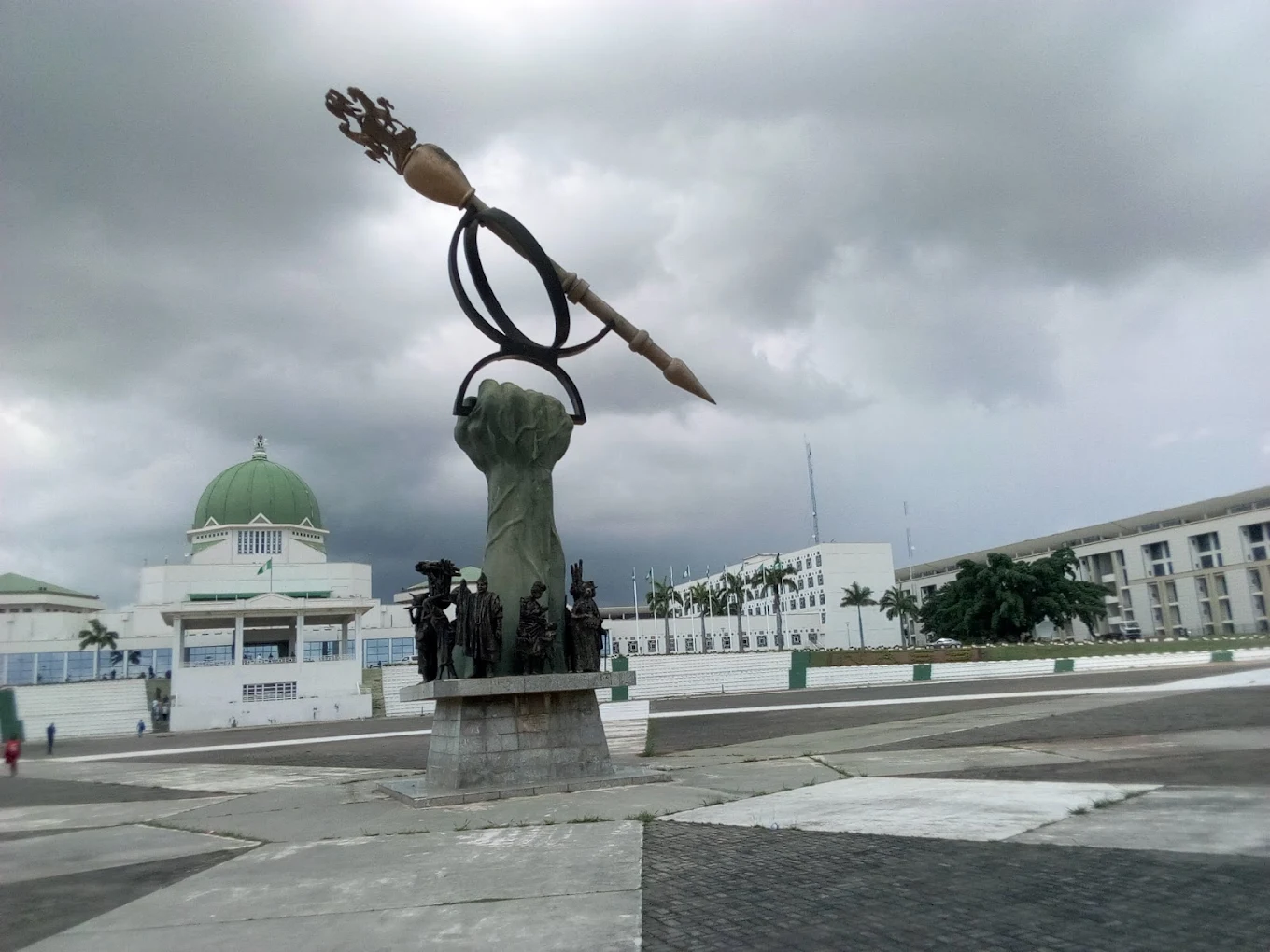From the late 19th Century to the early 20th, the world witnessed the “Partition of Africa’ by European powers. The motives for the partition are well-known; and many of the contradictions that resulted from that colonial assault still persist today. Nigeria is a product of that European colonial abuse.
Now, in the first quarter of the 21st Century, some politicians in our country have embarked on an exercise that can best be described as the “Fragmentation of Nigeria”. At the moment, the country which is just about 356,667 sq. miles (or 923,767 sq. kilometres) in size has 36 states, some of which are hardly viable. Yet, for frivolous reasons some of our political leaders want more states created, as if that is what they should be concerned with at this critical period in our country’s history. Must state creation continue ad infinitum?
It is certain that the demand for state creation by any person or group of persons at this period in Nigeria, will hardly be driven by genuine national interests. The fragmentation of Nigeria is not a necessity; but a colossal disadvantage. Already, the country has numerous intractable problems which require urgent attention; but instead, some politicians are busy pursuing state creation, obviously for their personal agenda.
In Delta State, the Senator representing Delta North Senatorial District, Senator Ned Nwoko has been running around for the creation of an “Anioma State” of his own personal design. His reasons for wanting the state created are mainly two. First, he wants to resolve an “imbalance” in the South East geopolitical zone, as the zone has less number of states compared to other zones. Second, he wants to merge Delta North with an area in the South East, to form a needed extra state since, according to him, Delta North or “Anioma” is Igbo. Both reasons are totally untenable and, in fact, very annoying.
If there is an “imbalance” in the South East, it should be resolved by creating the needed additional state within the South East, not beyond. It is illogical and abnormal to want to resolve an ‘imbalance” in the South East by annexing a region in the South South. To do so would amount to a sacrilegious disregard for the sanctity of natural geographical regionalism, a flagrant violation of a generally agreed geopolitical zoning arrangement and an insult on the Delta North people.
His second reason is both erroneous and provocative. The Delta North region is not linguistically and ethnically homogeneous; and majority of the people are not Igbo. In this region there are Isoko people whose language is Edoid; there are Ulukwumi people whose language is Yoruboid; and there are Ukwuani, Ika (Agbor) and Enuani people whose languages are Igboid. There are also Igala speakers in the Enuani area. Senator Ned Nwoko cannot, and should not, prescribe an ethnic identity for people. That is not the purpose for which he was elected.
One would have expected him to be concerned with improving the quality of life of the people in his constituency by helping to create opportunities for productive jobs (not legislative) ones, and by helping with the improvement of necessary infrastructure in the area. Instead, he is causing confusion by peddling ethnicity and by dabbling into an issue which he knows very little about, understandably because the issue is outside his area of learning. He therefore ought to have sought credible advice before making public statements on it.
The Senator is neither an anthropologist, nor an ethnologist, nor an ethnographer, nor a philologist, nor a linguist. History has little or nothing to do with ethnic identity. The place or places a people migrated from, hundreds or thousands of years ago do not determine their ethnic identity at the present time. That is why the Yoruba, are not Arabians; and the Urhobo are not Edo. Let me repeat, the people of Delta North are not all Igbo.
Languages of the world have been scientifically and professionally arranged into different classes and groups. In Nigeria, there are the broader and more general classes such as Niger-Congo, Benue-Congo, Atlantic-Congo, Afro-Asiatic, Nile-Saharan and so on. Then there are the smaller, atomistic groups such as Edoid, Ijoid, Idomoid, Igboid, Yoruboid, Tivoid and so on.
Each of the smaller groups is made up of different languages that share some phonological and lexical elements. For convenience, the name of each group is derived from the name of the language that has the largest number of speakers. For instance, Isoko is an Edoid language, but it is not Edo, and it is not a dialect of Edo. The group is named Edoid because the Edo language has the largest number of speakers in the group. Other languages in the group include Urhobo, Esan, Ososo, Okpamheri, Uhami and Uneme.
Ukwuani is a distinct language in the group of languages called Igboid. Ukwuani is not Igbo and it is not a dialect of Igbo. The Igbo language itself is Igboid, just as Edo language is Edoid; and the Yoruba language is Yoruboid. For clarity it should be known that the word Igboid is not a nomenclature for Igbo-speaking people. It is a descriptive term for a group of languages which include Igbo. Other languages in the group are Ikwere, Ogba and Ekpeye. It must be emphasized that the Igboid languages are separate languages; not dialects of Igbo. Many people use the word “dialect” without knowing its meaning.
In Linguistics there are standardized methods for measuring relationships between languages. For example, at the lexical level, two words from two different languages can only be said to be the same if they are semantically and phonemically identical. That is, if they are identical in meaning and in form. For instance, aka and eka (in Igbo and Ukwuani, respectively) are two different words because while they are the same in meaning, they are different in form. The same thing goes for nwoke and onyeke (Igbo and Ukwuani). Other aspects of language, such as morphology, grammar and syntax are subjected to such comparative analysis; and all facts put together, go to determine degrees of spoken intelligibility at the functional level. The phrase “at the functional level” means a situation where the native speaker of a language has no learning experience of the language being compared.
It is naïve for anyone to think that a single word like bia or nua can serve as an identity marker and that any language that has any one of them in its vocabulary is Igbo. That thinking is very, very wrong. The Ezon people use the word nua in their greeting; but they are not Igbo. The Ezon language is not even Igboid.
Many, if not all languages are eclectic. This is as a result of human interactions. There are words which the Ukwuani share with the Urhobo, Isoko and Edo. It is so with other languages in Nigeria. Where there are related languages, the criteria for determining the distinct identity of each of the languages are spoken intelligibility and ethnolinguistic certainties.
There is a professionally stipulated percentage of intelligibility between speakers of related languages to determine whether the languages are different or whether one is a dialect of the other. The degree of spoken intelligibility between Ukwuani and Igbo is very low and this indicates very clearly and authentically that Ukwuani is not Igbo.
Apart from the fact of being different languages, the Ukwuani do not have the same ethnolinguistic identity with the Igbo. For instance, they do not have the same pantheon, they do not have the same traditional dances; they do not have the same traditional administrative system and they do not have the same greetings. The Igbo are our good neighbours. They are energetic, industrious, enterprising, intelligent and physically well built, just as many other Nigerian are; but we the Ukwuani are not Igbo, period.
By the way, why has Senator Nwoko become a desperate promoter of ethnicity? Is linguistic or ethnic homogeneousness a criterion for state creation in Nigeria? Ethnic bigotry is antithetical to our national philosophy as clearly expressed in our national anthem: “Though tribe and tongue may differ, in brotherhood we stand.” The Federal Government of Nigeria has, since Independence, been working assiduously to achieve and sustain national unity. The establishment of the N.Y.S.C (of which I am a pioneer member), the building of the Unity Schools; and other measures, are efforts in that direction. In addition, thousands of our soldiers paid the supreme prize during the Civil War to keep our country united. For a Senator of the country to accentuate ethnicity in national issues is extremely objectionable and concerning.
Ethnic pigeonholing or separatism in state creation and other matters will inevitably exacerbate the already existing disunity that is threatening the corporate existence of our country. For us to have a strong progressive country, our leaders must recognize and respect the common humanity of all Nigerians. The Federal Government should not set a dangerous precedence by allowing an ethnic argument in state creation. But if Senator Ned Nwoko and his collaborators want an Igbo ethnachy created for them to reign supreme and if the government allows it, so be it; but the Ukwuani people with the Ndosumili, should not be dragged into it.
To conclude, I wish by this article, to draw the attention of the President of the Federal Republic of Nigeria, President Bola Ahmed Tinubu, the Governor of Delta State, Rt. Hon. Sheriff Oborevwori, the National Assembly and all Nigerians, to the fact that Senator Ned Nwoko is working hard to, either knowingly or unknowingly, create ethno-political crisis in Delta North Senatorial District by seeking to merge the district with a region where there is a separatist agitation in which the people do not want to be involved. He is also by his statements, stirring up unhealthy ethnic consciousness in some people. The Senator Should be called to order.
We the Ukwuani people with the Ndosumili, totally reject the creation of an “Anioma State” that includes any portion of the South East region. If an “Anioma State” must be created, it should be created only within the compass of the South South geopolitical zone.
God bless Delta State! God bless Nigeria!!
• Dr. Osani was a lecturer with Delta State University.






